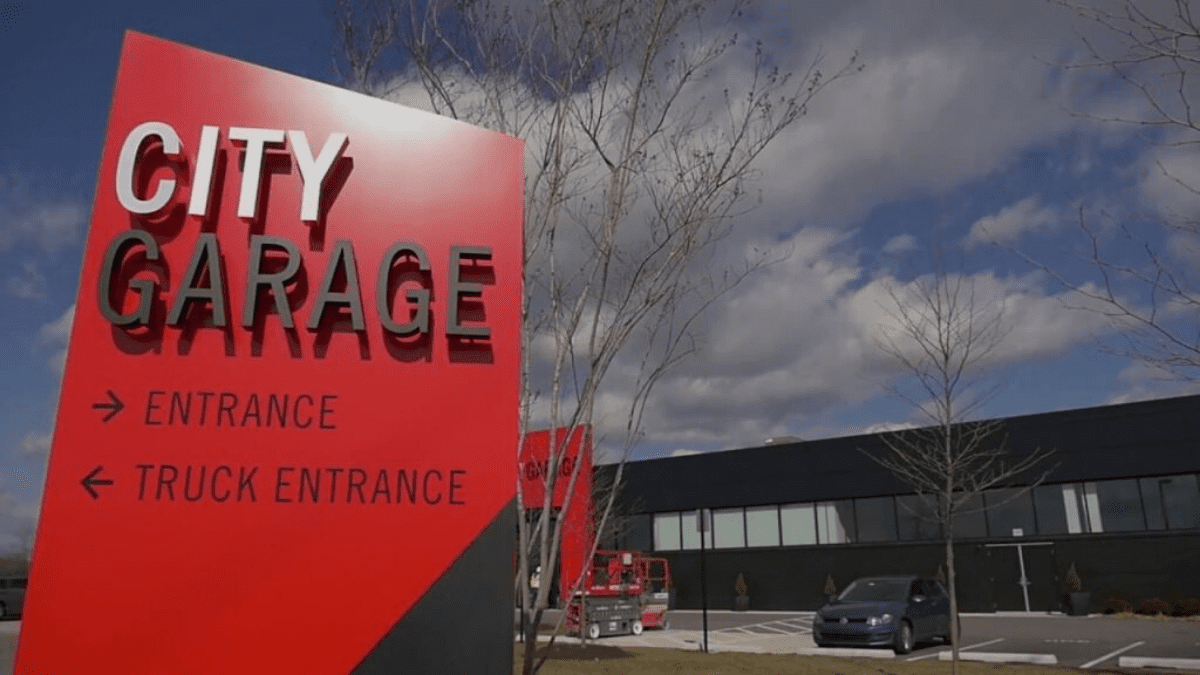
Baltimore’s LaunchPort Propelling MedTech Growth in the BioHealth Capital Region
There is a reason bioclusters with deep support ecosystems thrive.
Any early-stage BioHealth Capital Region (BHCR) company CEO or Founder will tell you the challenges and struggles their teams face are many and daunting. From navigating the tech transfer process, developing critical entrepreneurial skills, and securing venture capital funding to hiring the right talent, building a network of mentors, and securing manufacturing capacity, there are myriad, complex hurdles emerging companies have to overcome.
To do so, younger life science companies need access to funding. They also need access to expertise, experience, mentorship and facilities to properly deploy this funding and achieve critical company milestones.
Unique business development programs like The Launchport™ provide critical resources to early-stage life science companies striving to make that next leap forward. The Launchport, which is located at the City Garage in Baltimore, Maryland’s Port Covington area, is a great example of how a thoughtful, strategic support system can transform emerging companies into growing organizations that will ultimately help sustain the BHCR’s success.
The Launchport is led by life science industry veteran Bob Storey, who formed the venture with his partners in late 2017 and serves as the program’s Managing Partner. Launchport focuses on helping early-stage medical technology (MedTech) device companies make the jump from incubator graduation to product development, manufacturing, and beyond.
With a diverse background and deep experience in starting and growing life science companies, Storey is well-suited to lead The Launchport. He is a chemical engineer by trade and a life science industry and business development veteran whose speciality is in MedTech device companies. Storey currently serves on the State of Maryland’s Life Science Advisory Board; he also serves on several commercial advisory boards at Johns Hopkins/APL; and he is the Executive Chairman to several companies and is the Principal at The MVR Company, which focuses on the assessment and creation of new ventures with a MedTech emphasis.

Storey is also the former President and CEO of Vapotherm (NYSE: Vapo), a Maryland company that was founded by BHCR serial entrepreneur Bill Niland, who led Harpoon Medical (before it was acquired by Edwards Lifesciences).
“I became increasingly involved in the life science ecosystem about 20 years ago and was connected with many at Johns Hopkins University (JHU), especially those involved in venture development. One of those acquaintances, former JHU Venture Manager, Elizabeth Good Mazhari (and currently interim Managing Director of the Maryland Venture Fund) asked me to become a Site Miner, or mentor, for Hopkin’s medical device technologies being submitted to TEDCO’s Maryland Innovation Initiative (MII),” stated Storey.
Storey has been involved in getting funding through MII for over 80 JHU technologies as well as getting them involved with various training programs, including the iCorps program, where Storey is an instructor for the National Institutes of Health (NIH).
“I was talking to companies from all over and this recurring theme came up: after you come out of an academic incubator, what do you do next? Incubators get you started but the real work — the hard work — for a company, and particularly for MedTechs, happens after graduating from an incubator…there are a lot of stumbling blocks for young companies in the MedTech space,” he added.
Storey noted that early-stage MedTech stumbling blocks include establishing a viable revenue model, establishing clear reimbursement for target indications, and creating supply chain, logistics and distribution channels, among others.
“At this time there wasn’t a lot of infrastructure to support this next stage for MedTech companies,” commented Storey. “In Maryland, we can claim the top spot in clinical innovation; it is as good here as anywhere in the country. But the commercial support for companies emerging from the clinical development pipeline has been a traditional weakness here. So we started to think about how we could create something that’s not competitive with existing regional incubators but can lend support when they graduate from that stage.”
The LaunchPort was born to fill this need.

The idea for The Launchport started with a relationship Storey had at The MVR Company with Engineered Medical Systems, LLC (EMS), a medical device manufacturing company located in Indianapolis, Indiana that was led by two brothers, Brad and Jeff Quinn. The Quinns were familiar with the Baltimore area and eventually agreed to become The LaunchPort’s FDA-registered, in-house anchor manufacturing company. That core support creates the foundation for the experienced commercial experiences from which Resident start-up companies can draw.
Baltimore’s Abell Foundation and the Maryland Department of Commerce were prime movers in asking MVR and EMS to build a resource in Baltimore. TEDCO provided financial support in 2017 when the Launchport concept was an award winner in the TEDCO Incubator Challenge. With a target of securing medical device manufacturing within Baltimore, an early success was the relocation of Abell Foundation and Camden Partners’ portfolio company Eneura to Baltimore from California, where it had migrated its manufacturing capability several years ago.
Today, EMS is the in-house manufacturing arm for a number of The Launchport resident companies, most of which have graduated from incubators and have already raised seed/Series A rounds. Almost all have FDA approval, are preparing for regulatory approval, or are developing clinical product demos. Nearly all Resident companies are at very similar stages in their life cycles. Some Residents operate their own work cells, as part of the process of developing Good Manufacturing Practice (GMP) processes that will hopefully lead them to build their own facilities within the region some day.
Some of The LaunchPort’s 11 resident companies, including one remote resident, are well known to BioBuzz readers, including CoapTech, Renalert, and LifeSprout. Galen Robotics, a company spun out of JHU’s Fast Forward incubator, was the first graduate from The LaunchPort, moving from 1,500 square feet in The Garage to a new 5,000 square foot facility in Baltimore.
At The Launchport, resident companies can access mentors, expand their network, collaborate with other similar companies and contract manufacture in-house.

“LifeSprout is a good example of this. They are operating their own manufacturing cell here. Their clean room is our clean room; they have an engineering space and we have a wet lab for them. They think of The Launchport as a pilot facility to demonstrate GMP process expertise. This is a launchpad and they are going to come up with a qualified product and will then hopefully phase into a local facility that makes it in volume,” stated Storey.
“The fundamental principle is that companies start to stabilize in the MedTech ecosystem when they get to the point where they start to make things. This is a time when your engineers, your business development people and your CEO have their kids in school — have put down roots. So when the time comes to expand, the hope is that they will stay here,” Storey added. “This was a key concern from all of our supporters — we want these companies and their talent to stay in the region.”
The Launchport model has a longer time horizon than most incubators/accelerators and provides inroads to two of the finest medical schools in the country, the Enterprise Zone, and collaboration with Weller at Port Covington. Resident companies also get access to an FDA-regulated facility, experienced executives, and a support system that are ready to help companies reach the next phase of their growth.
“We do a lot of pro bono work early because we have a very strong philosophy of getting to know people and seeing if we have common ground…We’ve been involved with most of the current program residents for a number of years. Now we are moving to the next phase and we are starting to solicit new applicants,” stated Storey.
The Launchport is developing a strategy and plan to bring in new emerging MedTech resident companies to its 17,000 square foot facility. The organization is looking at three different clinical areas to create a venture lab for the formation of joint-venture, pre-seed MedTech companies. Storey stated that the three, and possibly four areas, potentially include neurosurgery, ophthalmology, tissue engineering and surgical robotics. Storey anticipates the venture lab program launching in the near future, with each focus area supported by excellent mentors with expertise in each specific area.
“Right now we’re talking with a number of companies that are interested. We’re just looking for people we can engage with and help through this process to build a strong business model, mentor them, and make them successful. This is all about community and networking. I encourage anyone that’s interested to get in touch with us,” added Storey.
Storey and The Launchport team are an essential component of the BHCR life science support ecosystem, providing essential resources, invaluable networking opportunities, FDA-registered manufacturing capabilities and critical industry experience. The LaunchPort is well on its way of achieving its mission of propelling early-stage MedTech companies to new growth while establishing deep roots in the BHCR.
- About the Author
- Latest Posts
Steve brings nearly twenty years of experience in marketing and content creation to the WorkForce Genetics team. He loves writing engaging content and working with partners, companies, and individuals to share their unique stories and showcase their work. Steve holds a BA in English from Providence College and an MA in American Literature from Montclair State University. He lives in Frederick, Maryland with his wife, two sons, and the family dog.




